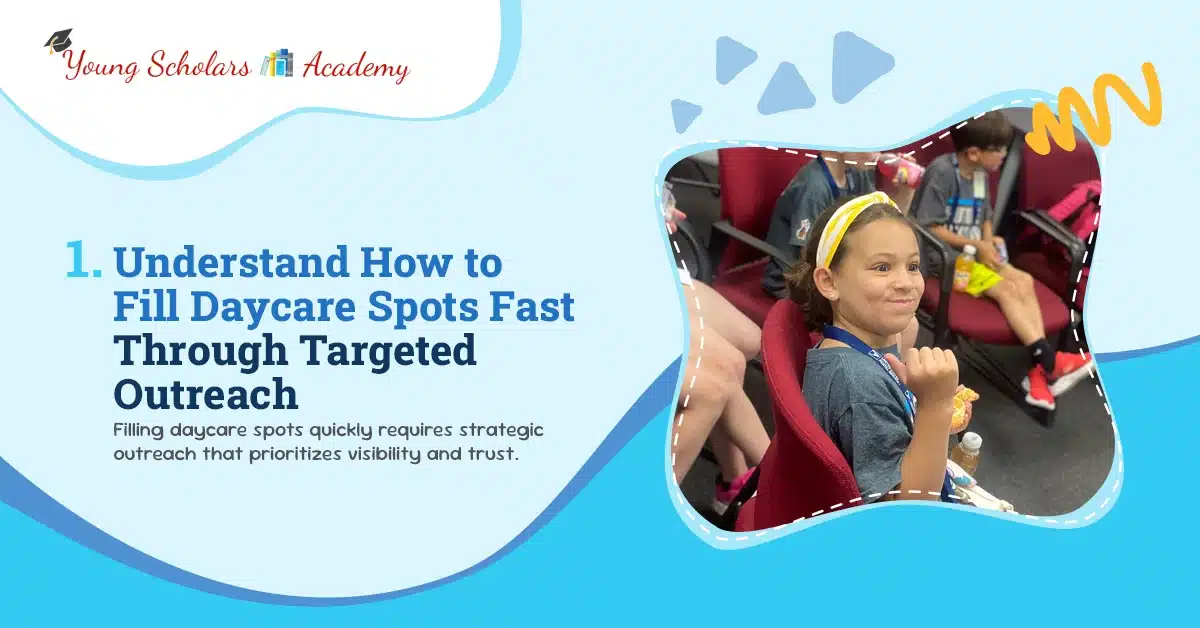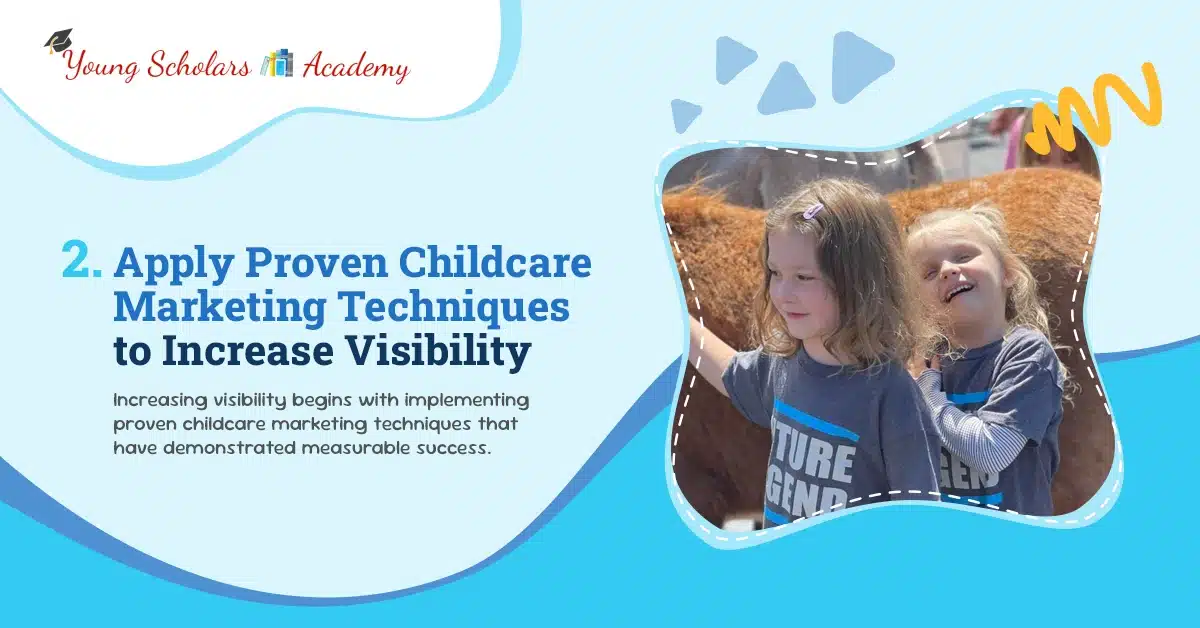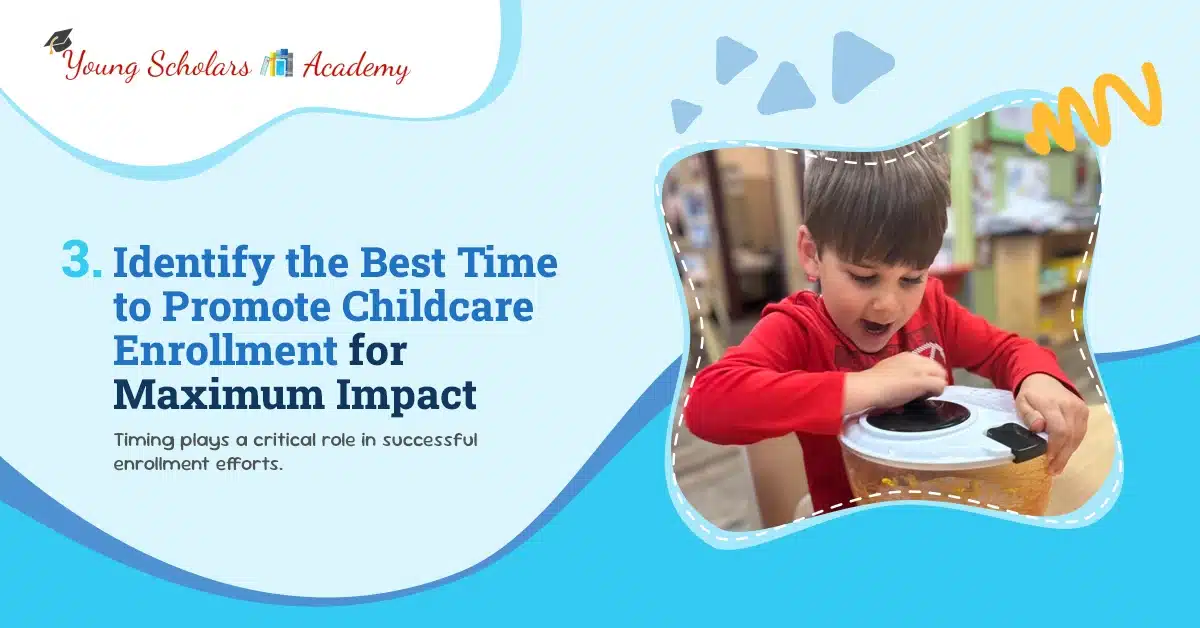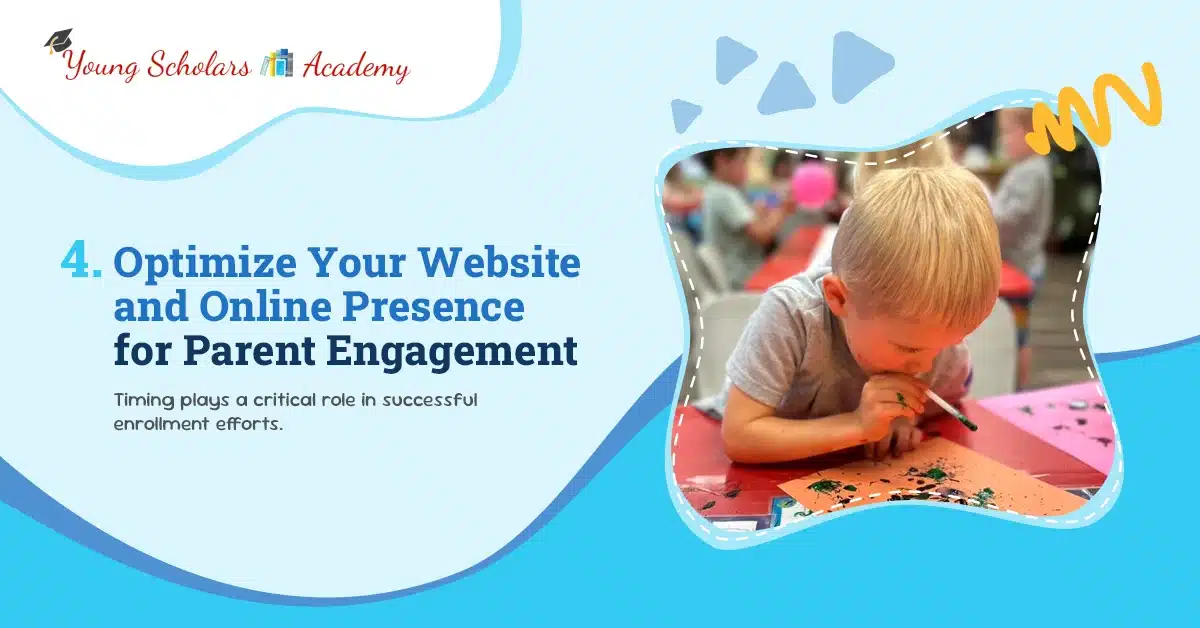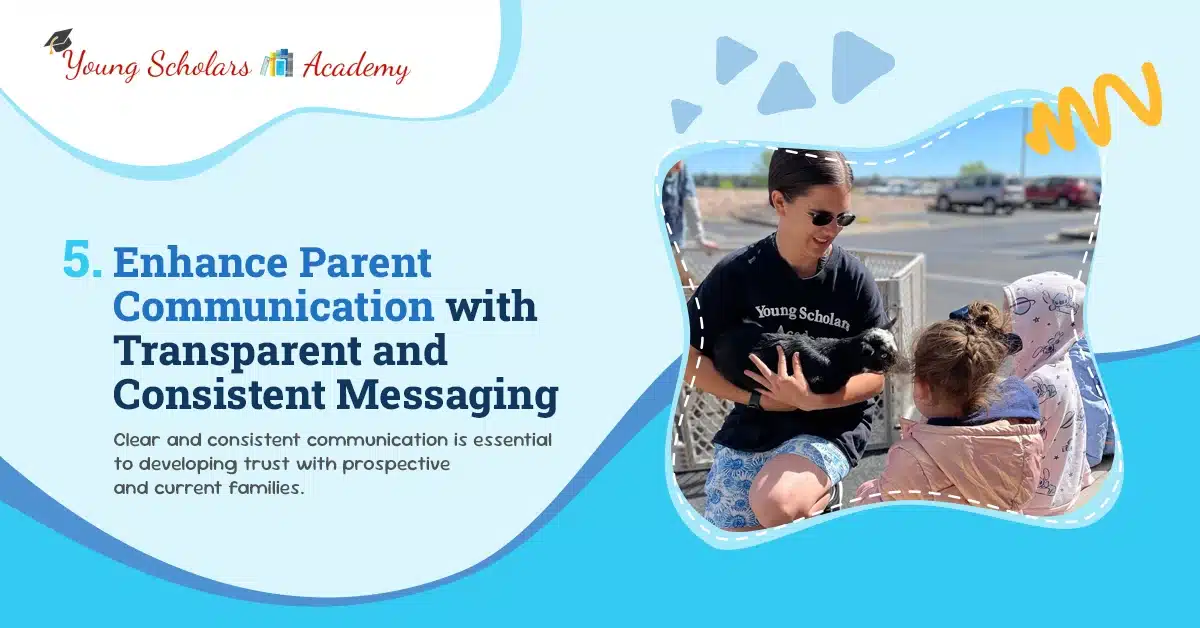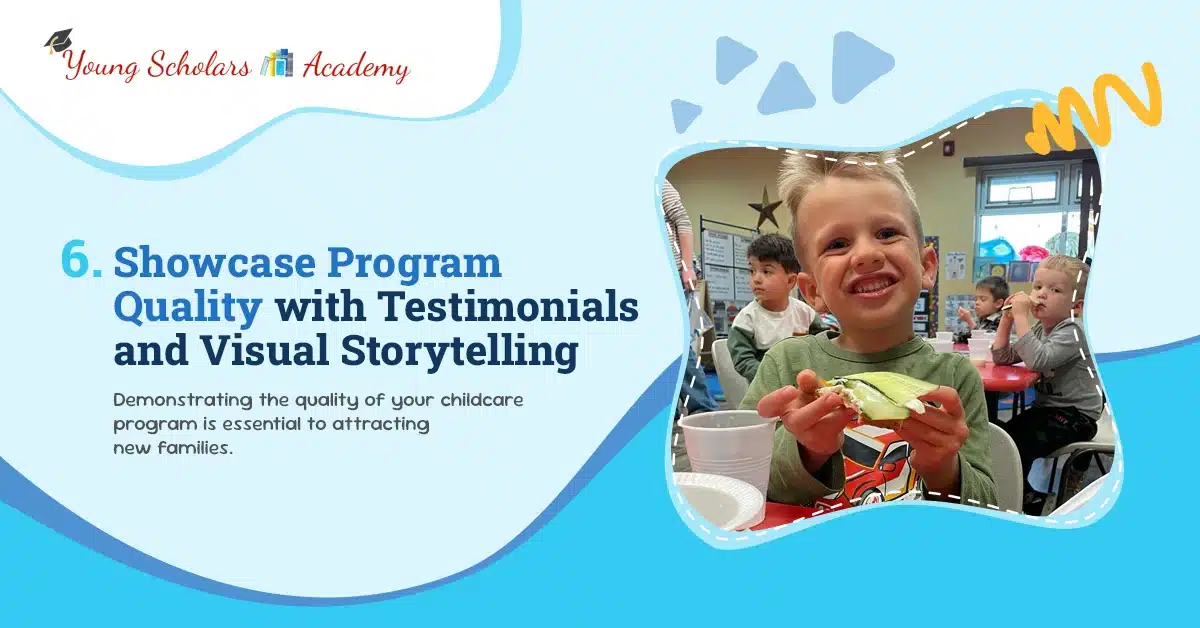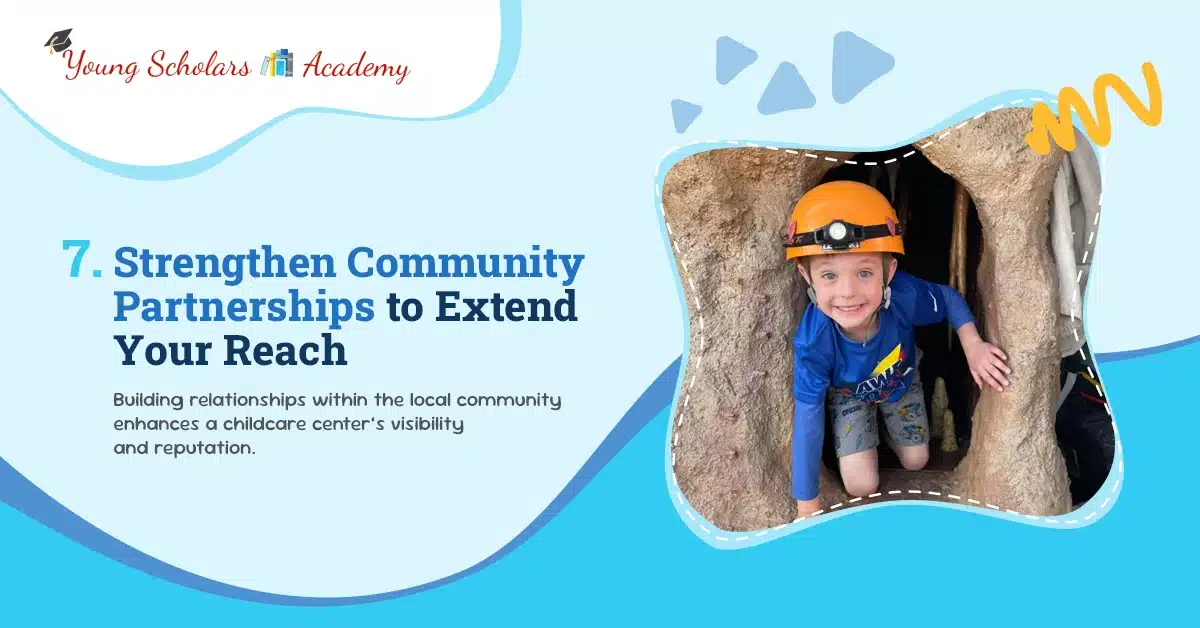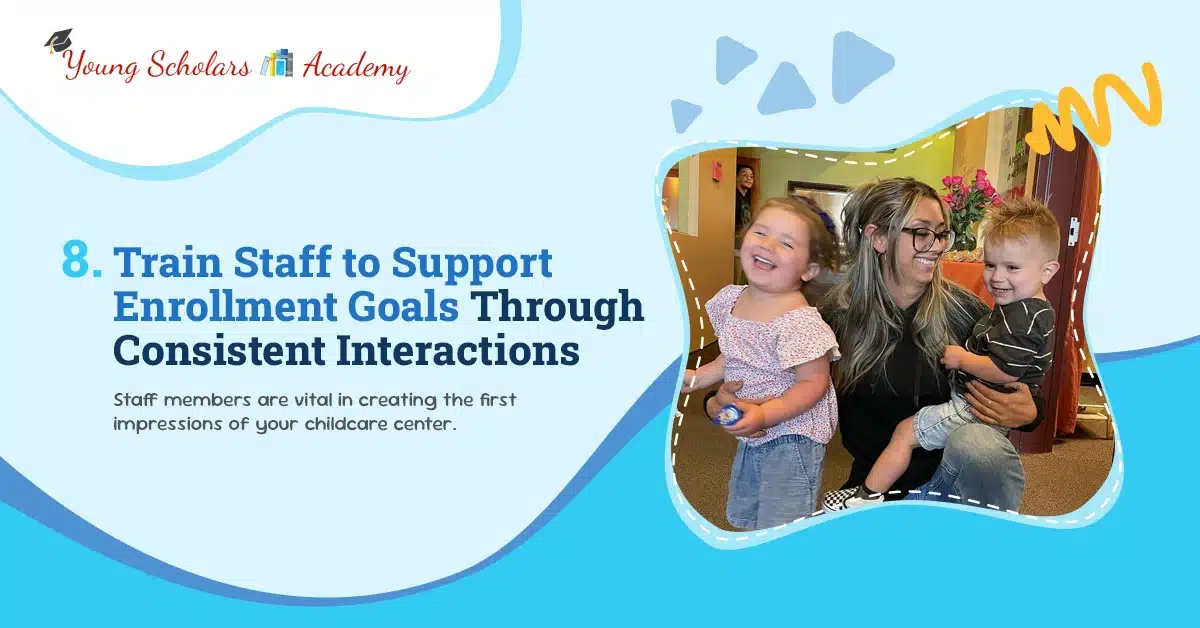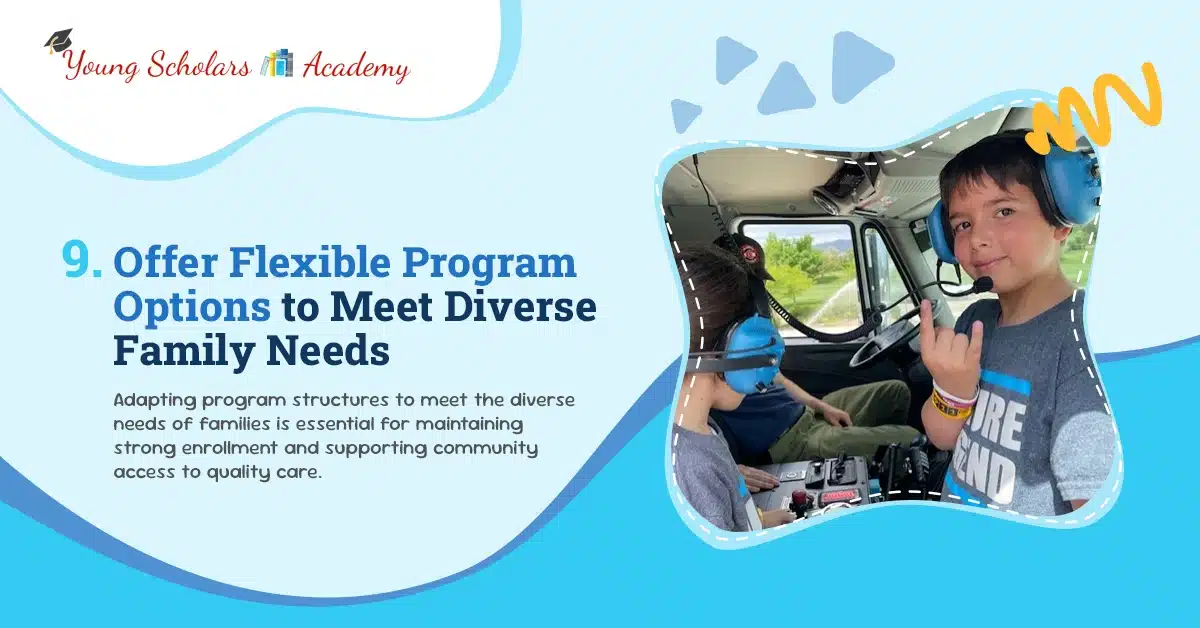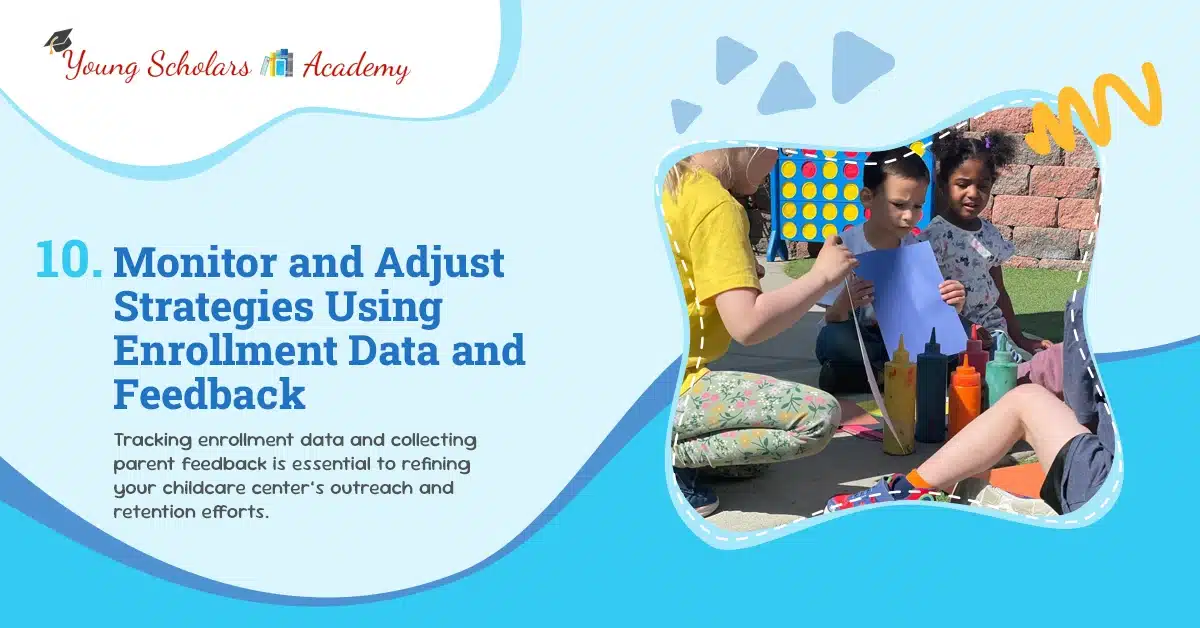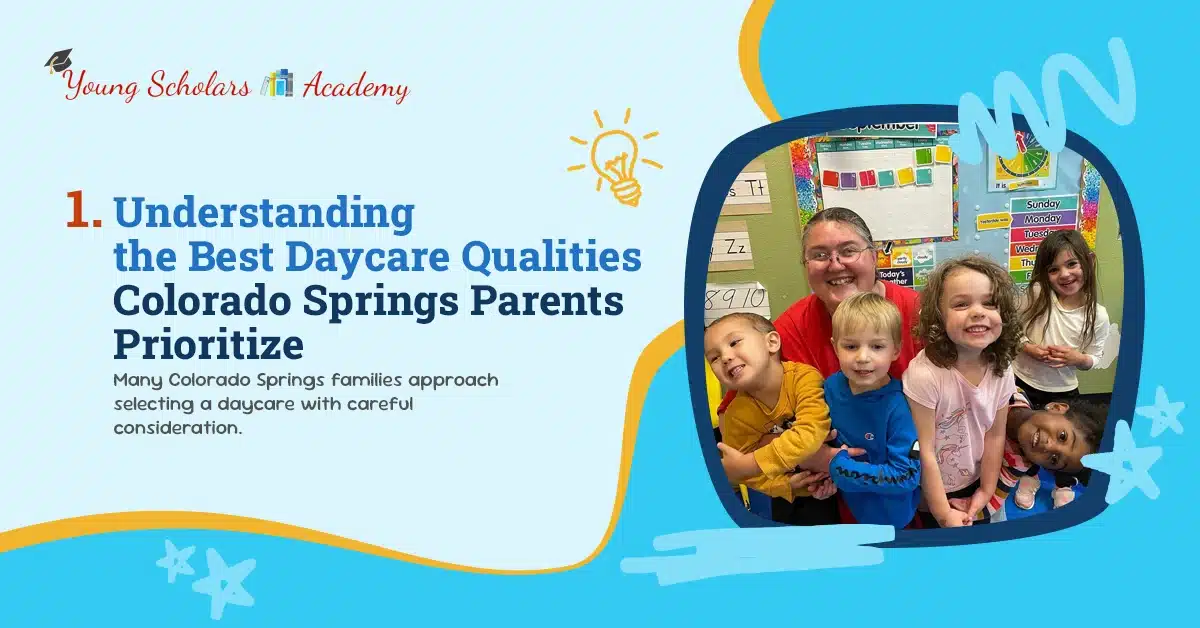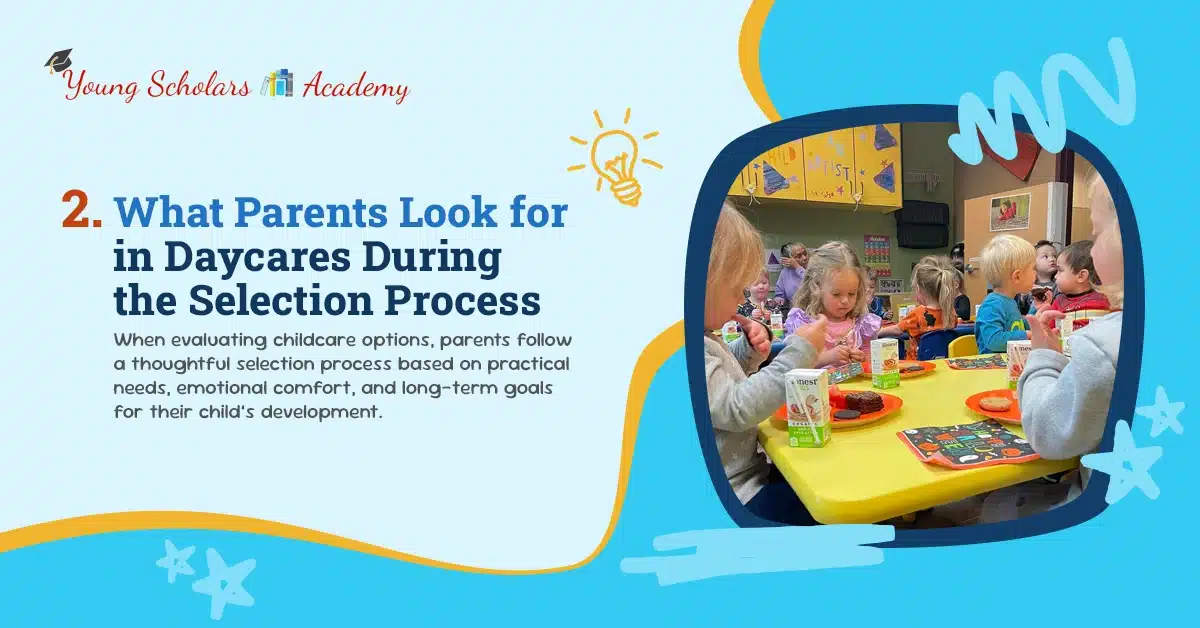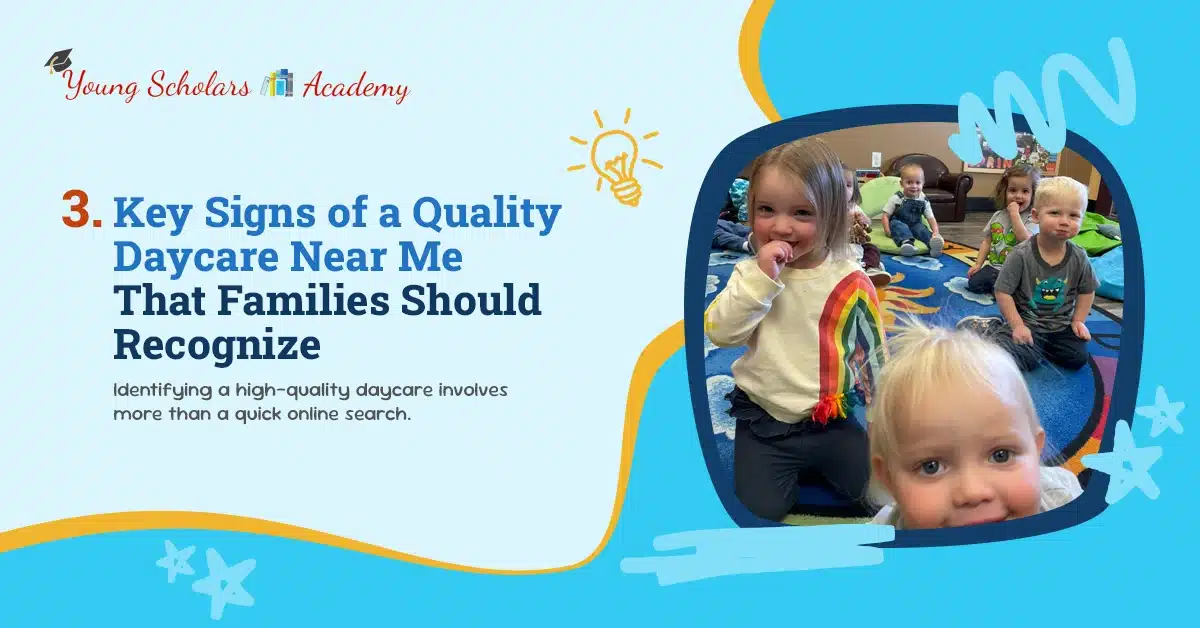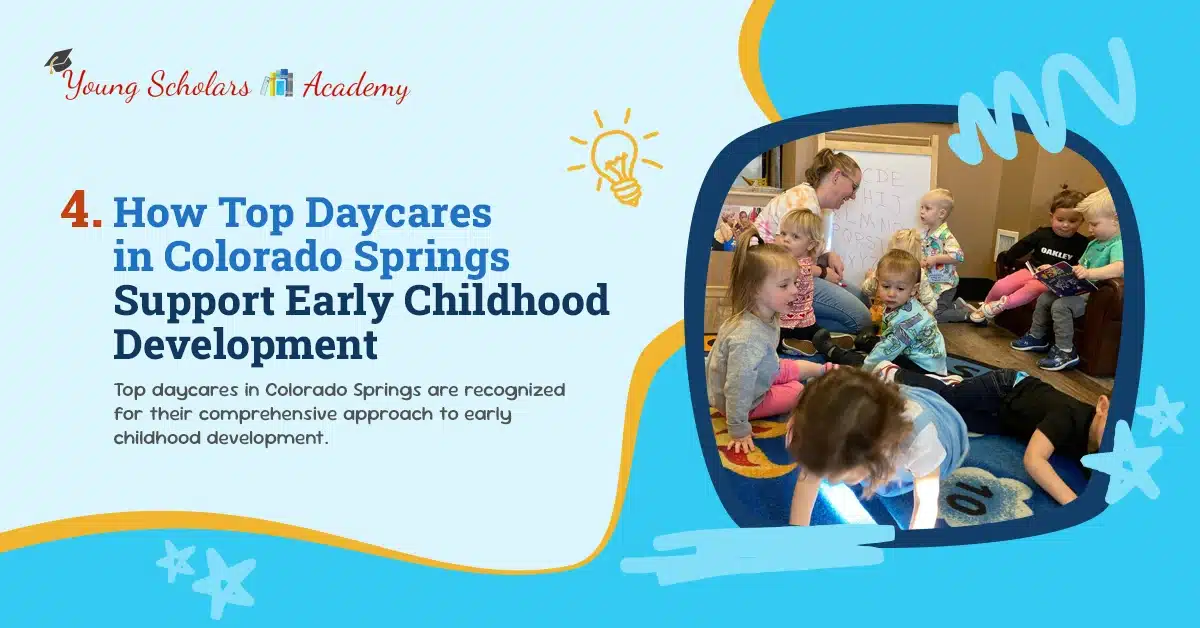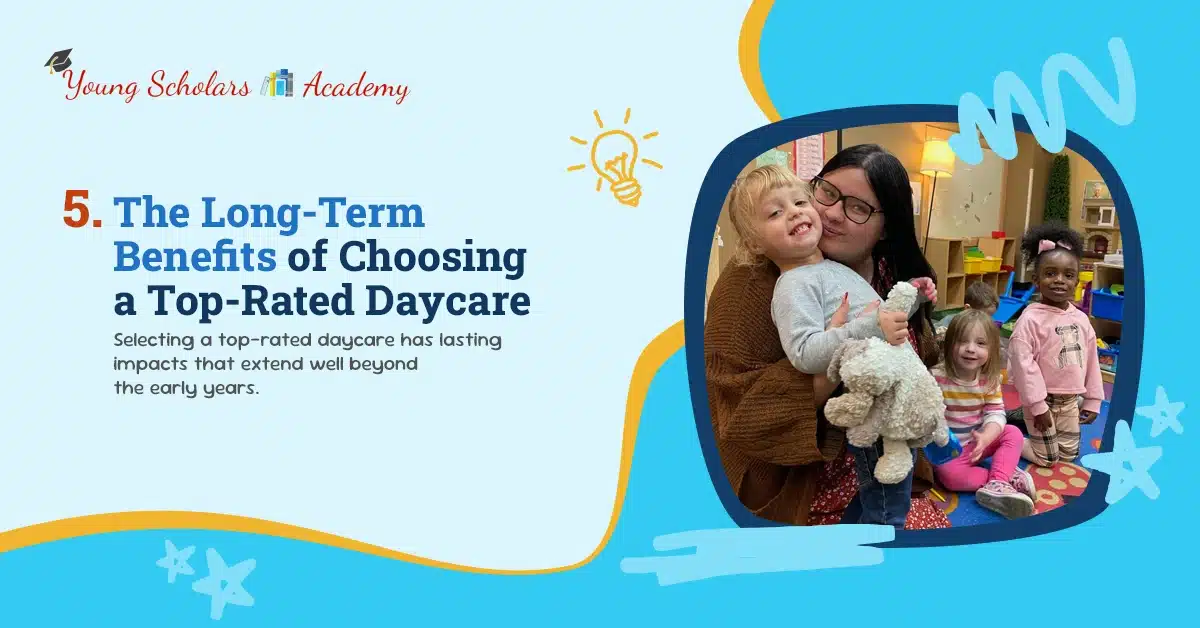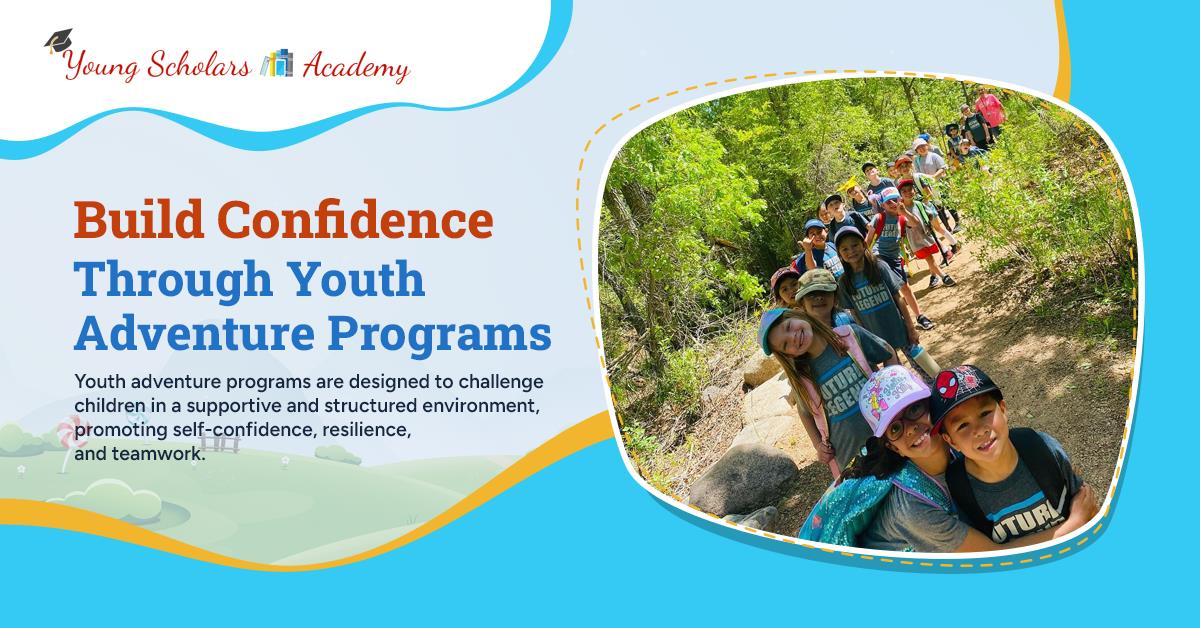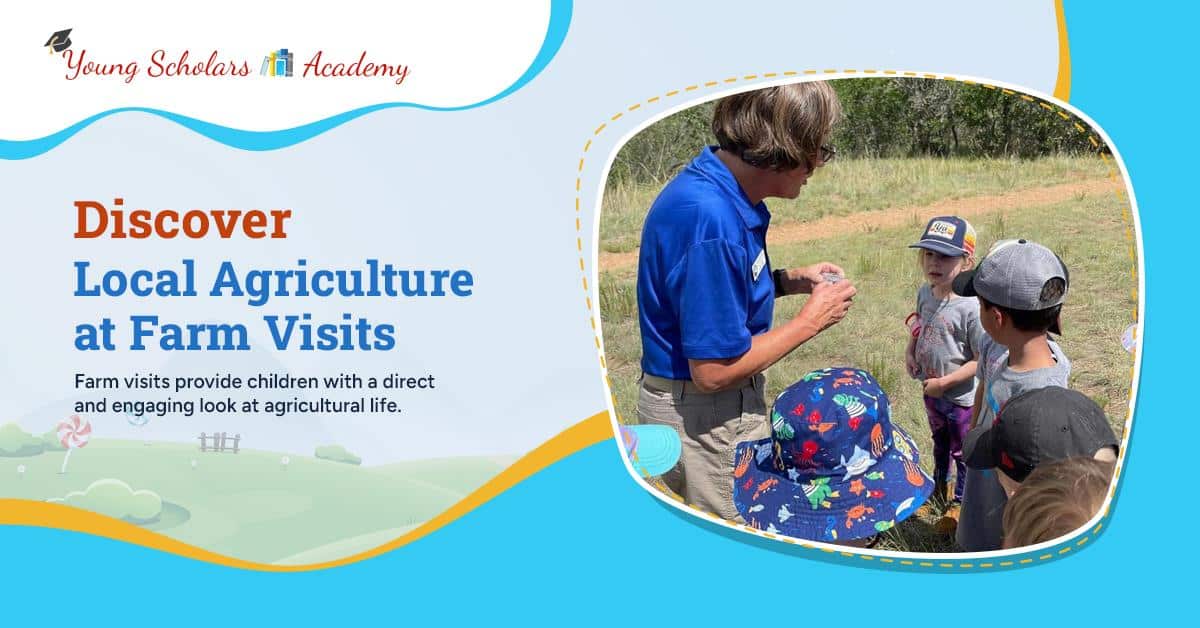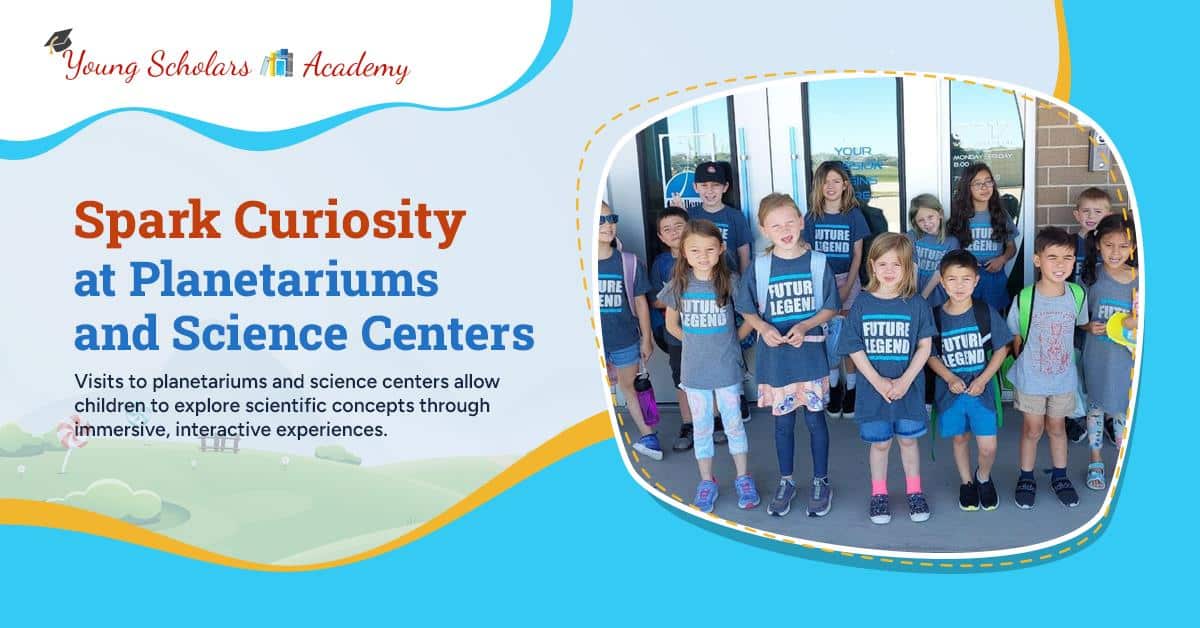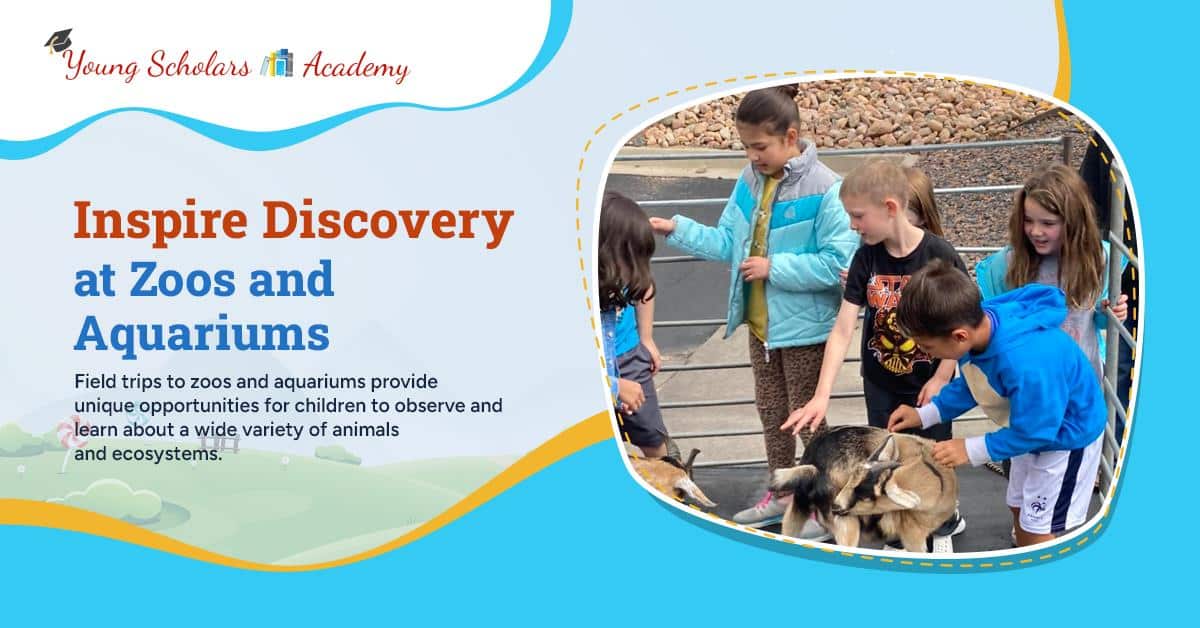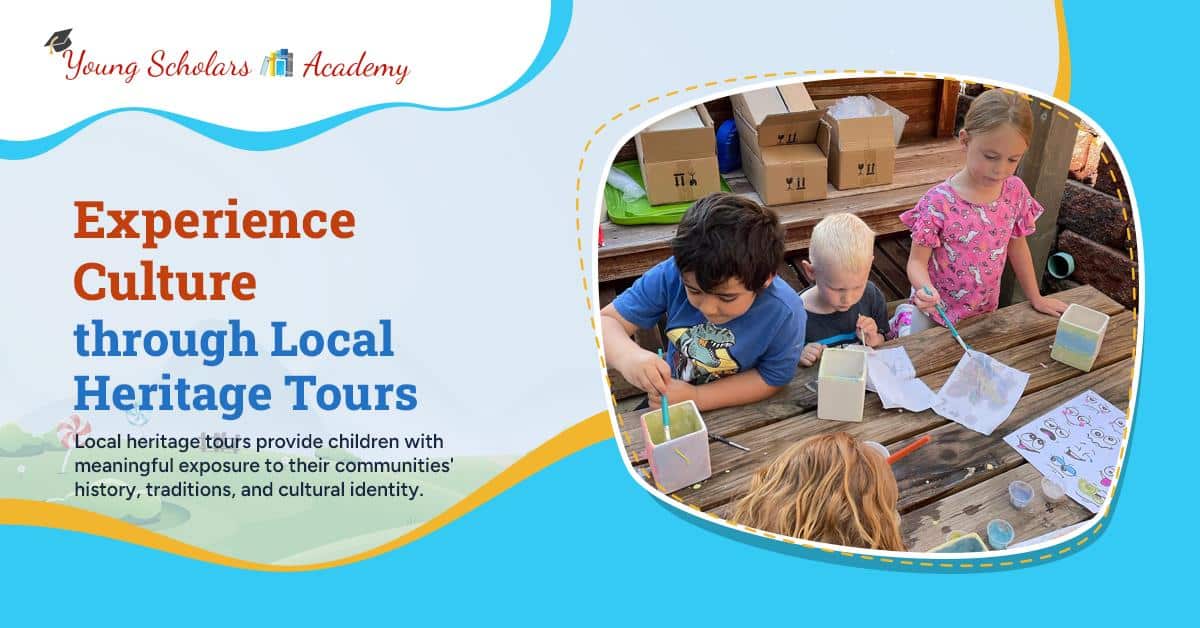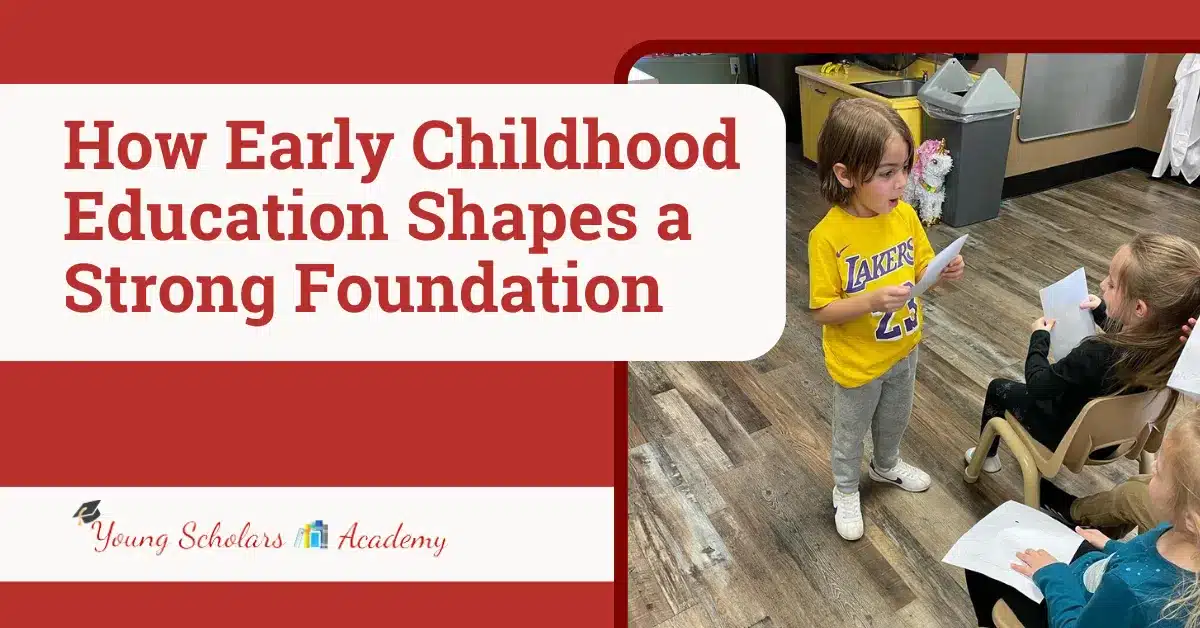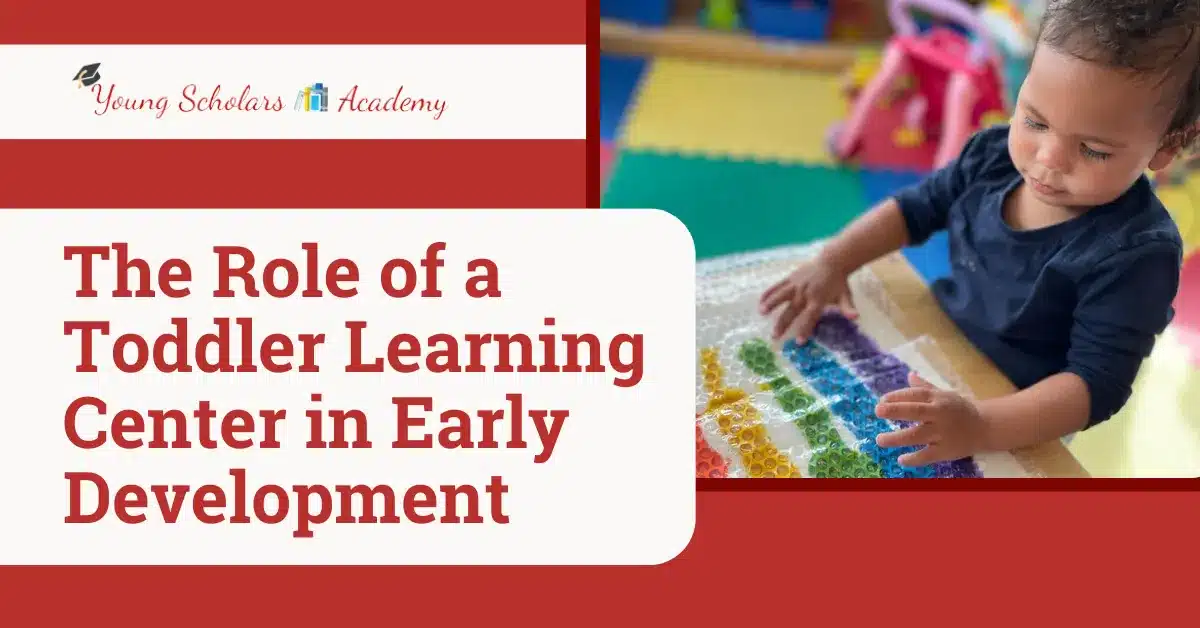Childcare enrollment strategies that work are vital for centers aiming to maintain steady growth and meet the needs of their local communities. With increasing competition and evolving parent expectations, childcare providers must adopt proven methods that resonate with today’s families. From optimizing communication with prospective parents to enhancing program visibility and building lasting trust, practical enrollment efforts require thoughtful planning and execution.
These strategies reflect best practices in early childhood education while aligning with the values of quality, consistency, and community engagement. By implementing these techniques, childcare centers can create a welcoming and trusted setting that appeals to families seeking long-term care and educational support for their children.
1. Understand How to Fill Daycare Spots Fast Through Targeted Outreach
Filling daycare spots quickly requires strategic outreach that prioritizes visibility and trust. Begin by leveraging referral incentives for current families. Word-of-mouth remains one of the most reliable methods of reaching like-minded parents who value high-quality care. Community events allow your program to engage directly with families and highlight your services in a credible setting.
Digital platforms also play a major role in accelerating enrollment. Maintain an up-to-date Google Business Profile and ensure your website outlines program availability, curriculum highlights, and enrollment steps. Social media ads and local parenting groups can expand your reach within your service area.
To streamline the process:
- Offer virtual or in-person tours on
- Respond promptly to
- Use simple, mobile-friendly enrollment
When executed consistently, these targeted outreach methods can effectively fill daycare spots while reinforcing your reputation as a dependable early education provider.
2. Apply Proven Childcare Marketing Techniques to Increase Visibility
Increasing visibility begins with implementing proven childcare marketing techniques that have demonstrated measurable success. Search engine optimization (SEO) ensures your website appears in local search results when families seek care in your area. Focus on optimizing keywords, adding location-based content, and maintaining accurate listings across platforms.
Social media marketing is another effective tool. Consistent posting of classroom activities, staff highlights, and parent testimonials helps build trust and familiarity. Paid advertisements on Facebook and Instagram allow you to target local families precisely.
Additionally, consider these proven tactics:
- Create informative blog content addressing parent concerns
- Develop printed materials for local libraries, pediatric offices, and community centers
- Use email newsletters to nurture leads who have shown interest
By combining digital and community-based strategies, childcare centers can increase visibility, strengthen brand recognition, and attract families with educational values aligned with theirs.
3. Identify the Best Time to Promote Childcare Enrollment for Maximum Impact
Timing plays a critical role in successful enrollment efforts. Understanding when families are most likely to search for childcare allows centers to align their promotional activities for maximum results. The best time to promote childcare enrollment is typically between January and March, as many parents begin planning for the upcoming school year during this period. A second peak often occurs in late summer, especially for programs with fall start dates.
To optimize timing, consider the following:
- Launch campaigns 2–3 months before expected enrollment deadlines
- Align outreach with local school district calendars
- Increase visibility during parent-teacher conferences and community events
Early promotion ensures families have enough time to schedule tours, inquire, and make informed decisions. By aligning your marketing calendar with parent behavior and seasonal trends, your center can maximize interest and secure enrollment commitments more efficiently throughout the year.
4. Optimize Your Website and Online Presence for Parent Engagement
An effective website is a central tool for engaging prospective families and supporting enrollment efforts. It should provide a clear overview of your programs, staff qualifications, enrollment steps, and contact information. Prioritize a mobile-friendly design to accommodate parents browsing on smartphones or tablets.
In addition to website clarity, ensure your online presence remains consistent across all platforms. This includes maintaining updated information on your Google Business Profile, social media pages, and childcare directories.
Key elements to include on your website:
- Virtual tour options or photo galleries of classrooms
- Testimonials from current or past families
- Easy-to-locate tuition details and FAQ section
Consistent branding and professional visuals reinforce credibility and make navigation easier for busy parents. Maintaining a strong, informative, and user-friendly online presence, your childcare center can build trust, increase inquiries, and guide families seamlessly through enrollment.
5. Enhance Parent Communication with Transparent and Consistent Messaging
Clear and consistent communication is essential to developing trust with prospective and current families. Parents value timely updates and honest information that supports their decision-making and reinforces your program’s credibility. From the first inquiry through the enrollment process, every message should reflect professionalism and clarity.
Establish reliable communication practices by:
- Responding promptly to phone calls and emails
- Using a consistent tone across all written materials
- Providing regular updates through newsletters or parent portals
Ensure all messaging—whether on your website, social media, or printed materials—accurately reflects your curriculum, policies, and values. Avoid unclear or overly technical language that may confuse you.
Regular follow-ups after tours or information requests also demonstrate attentiveness. By prioritizing transparency and consistency in all interactions, childcare centers can create a dependable and approachable image that encourages parent confidence and long-term engagement.
6. Showcase Program Quality with Testimonials and Visual Storytelling
Demonstrating the quality of your childcare program is essential to attracting new families. Testimonials and visual content offer authentic insight into the daily experiences and outcomes provided by your center. Parents often rely on the opinions of others when evaluating care options, making real feedback a powerful enrollment tool.
Incorporate testimonials across various platforms:
- Highlight parent reviews on your website and social media
- Include brief quotes in printed brochures and email communications
- Feature testimonials in enrollment presentations or tours
Visual storytelling further enhances your credibility. Share photos and videos that depict classroom activities, learning environments, and staff interactions with children. Ensure all visual content fits your brand and maintains a professional appearance.
Together, testimonials and visuals provide evidence of a nurturing, high-quality program. They allow prospective families to envision their child’s experience, helping to establish trust and support informed enrollment decisions.
7. Strengthen Community Partnerships to Extend Your Reach
Building relationships within the local community enhances a childcare center’s visibility and reputation. Strategic partnerships allow centers to reach new families, establish credibility, and reinforce their role as trusted educational providers. Collaborating with nearby businesses, schools, healthcare providers, and civic organizations helps create lasting referral networks.
Effective community partnership opportunities include:
- Participating in local fairs, festivals, or parent
- Providing child development resources to libraries or pediatric
- Collaborating with nearby elementary schools for shared events or
These partnerships expand your audience and demonstrate your commitment to community involvement and family support. Additional ways to build local recognition are engaging in service initiatives, sponsoring events, or hosting informational sessions.
By actively contributing to the broader community, your center becomes a familiar and respected presence—positioning itself as a reliable option for families seeking dependable childcare solutions.
8. Train Staff to Support Enrollment Goals Through Consistent Interactions
Staff members are vital in creating the first impressions of your childcare center. Their ability to communicate, answer questions, and present the program positively can directly influence a parent’s decision to enroll. Training staff to maintain professionalism and consistency during all interactions ensures alignment with enrollment goals.
Key training areas include:
- Greeting prospective families with courtesy and confidence
- Providing accurate, up-to-date information about programs and policies
- Demonstrating enthusiasm for early childhood education
Ongoing professional development and regular communication with staff help reinforce these standards. Front-desk personnel, teachers, and administrative staff should all understand their role in supporting enrollment through positive engagement.
By preparing staff to handle inquiries, conduct tours, and respond to feedback with clarity and care, your center builds trust and improves the overall experience for families considering enrollment. Consistent, informed interactions strengthen your reputation and drive long-term enrollment success.
9. Offer Flexible Program Options to Meet Diverse Family Needs
Adapting program structures to meet the diverse needs of families is essential for maintaining strong enrollment and supporting community access to quality care. Flexibility in scheduling and services allows parents to find solutions that align with their work hours, family commitments, and financial considerations.
Examples of flexible program options include:
- Part-time or full-time enrollment to suit varying levels of care needed
- Extended care hours to assist working families with early or late schedules
- Drop-in or temporary care for families with unpredictable routines
- Summer and holiday programs to maintain continuity during school breaks
Promoting these options clearly in marketing materials, tours, and online platforms helps families understand the value and accessibility of your offerings. By providing adaptable care models, your center demonstrates responsiveness and inclusivity, making it a preferred choice for families seeking practical and supportive early education solutions.
10. Monitor and Adjust Strategies Using Enrollment Data and Feedback
Tracking enrollment data and collecting parent feedback is essential to refining your childcare center’s outreach and retention efforts. Regular analysis allows administrators to identify which strategies are working and where improvements are needed to maintain enrollment success.
Important metrics to review include:
- Number of inquiries and scheduled
- Conversion rates from inquiry to
- Enrollment trends by age group and
- Parent satisfaction surveys and feedback
This data provides insight into parent decision-making and highlights areas where adjustments may enhance performance. For example, low tour-to-enrollment ratios suggest the need for improved follow-up communication or revised messaging during tours.
Feedback from current and prospective families can uncover concerns or opportunities that may otherwise go unnoticed. By consistently using enrollment data and feedback, your center can make evidence-based decisions, strengthen program offerings, and improve the overall enrollment experience for families.
Conclusion
Increasing childcare enrollment requires a thoughtful blend of strategy, communication, and community connection. By implementing the ten proven tips outlined in this blog—from targeted outreach and digital visibility to flexible program options and staff training—centers can create a welcoming and trusted environment that supports long-term growth. Each approach plays a key role in building stronger relationships with families and reinforcing the value of quality early childhood education. With consistent evaluation and a commitment to excellence, enrollment success becomes a sustainable goal.
Ready to elevate your enrollment strategy? Connect with Young Scholars Academy today at https://youngscholarsacademycolorado.com/contact-us/ or call (719) 522-9099 to learn how we support families and build lasting educational foundations.
